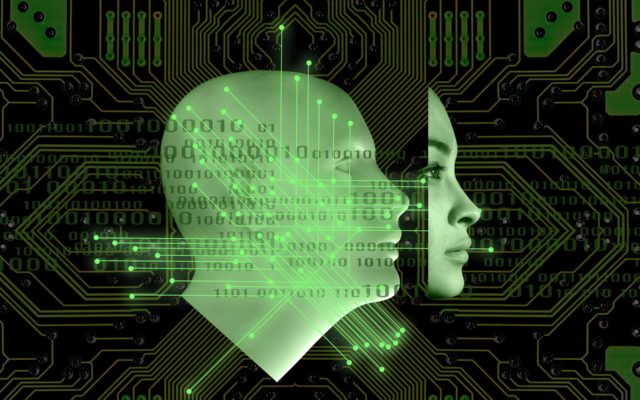A friend and I were talking recently about the dramatic change that digital transformation will create. The potential impact on our lives is tremendous, from autonomous vehicles that whisk us to and from work, to drones that deliver goods directly to our homes or other locations, to the insights generated from data harvested by IoT devices.
We can expect significant upgrades in customer experience and business models from the use of data massaged by artificial intelligence and machine learning.
Of course, on the flip side, there are concerns. Governments and private companies are gathering more data about individuals than ever before. What will they do with that data? Who decides who owns your image, and what your rights are to privacy?
What will Apple, Google, Facebook and others do with all the data they collect about your activities and selections online?
We’ve reached a point where the technology and what it can do has easily surpassed the consideration of its consequences and the impact on our ethical and regulatory frameworks. This isn’t the first time this has happened, however.
Recall just a few years ago that a scientist manipulated genes in a foetus, causing an uproar in the scientific community. The fact that we can do something because of advances in science does not mean that everyone is prepared for, or comfortable with, the ability to do it.
In the past, non-technical factors – ethical, moral, legal, societal, regulatory – slowed the advancement of science. If we look back only a few centuries, we can see that ethical, religious and moral issues resisted science and what it could do or tell us.
From Galileo confronting the church on the geocentric model of the universe to doctors desecrating graves to get access to human cadavers for dissection, science has often been held back by societal, regulatory or ethical concerns.
Today, the opposite is true
Today, science and technology move so quickly that ethical, moral, societal, legal and regulatory frameworks struggle to understand what is happening, much less keep up with the changes. Airbnb can enter a city and dramatically change the housing landscape before the city government determines its opinion on short-term leases.
Facial recognition programs tied to cameras in public places can capture millions of images and those images can be used to determine the attitude and potential behavior of citizens. The speed of implementation has shifted – science and technology move faster than people, societies and beliefs.
The impacts that new science and technology have on how we live, the rules we agree to, the expectations we have about security and privacy are not aligned with all the new technology.
Confounding the new technology will be the fact that society in general, our politicians and the laws and regulations they create and other administrative rules and burdens won’t change quickly, and will delay the promise of many of the emerging technologies.
There’s an opportunity in here somewhere for someone to do some serious thinking, and bringing together different constituencies to help provide a pathway for more information, more analysis of the impact of digital transformation, more sense of the changes necessary in legal and regulatory frameworks and more understanding of the risks to income, privacy and security. Who is doing this work?
The best way to address this is to bring people from different disciplines together in one team or organization – people who are interested in the technology of course, and what it can do, as well as people from the political realm (who can change laws or create new ones), funding mechanisms, education entities (because we need to educate both young people and older people on the possibilities and impacts of new technologies), people who focus on privacy and ethics, sociologists and of course we’ll need experts in the law.
It would work best if we could create integrated information about these topics, with these diverse perspectives, because the technologies will have impacts that cross all of these functions – and probably more.
You can read more by Jeffrey Phillips, here
Article by channel:
Everything you need to know about Digital Transformation
The best articles, news and events direct to your inbox
Read more articles tagged: Featured, Governance









